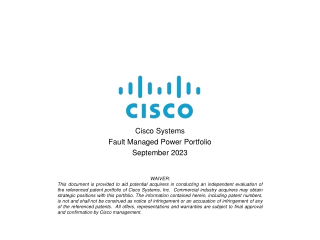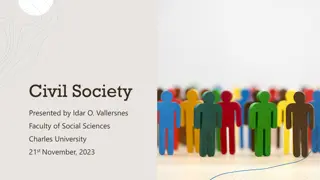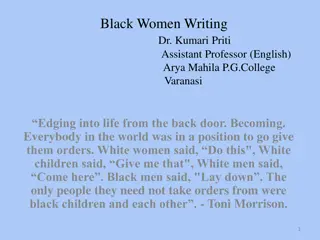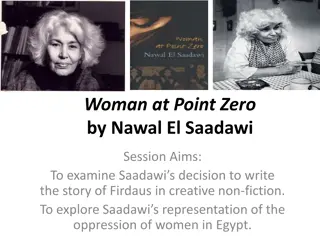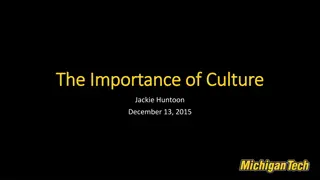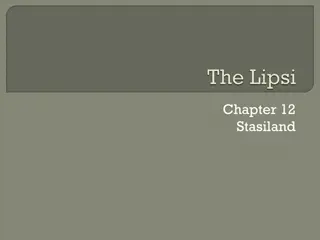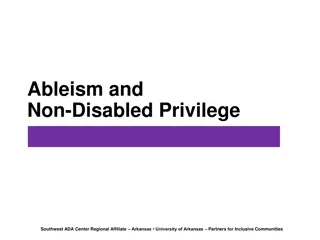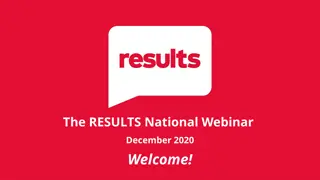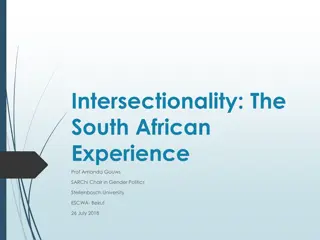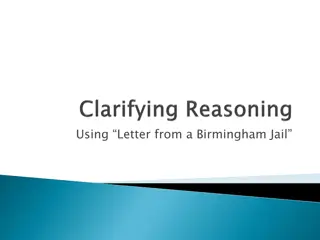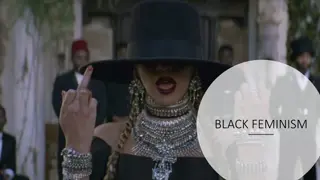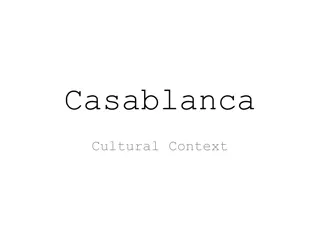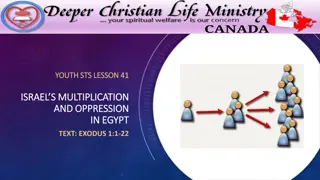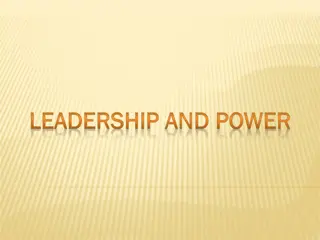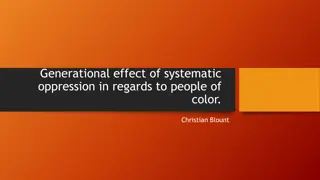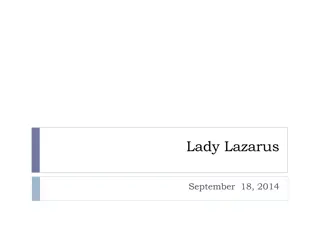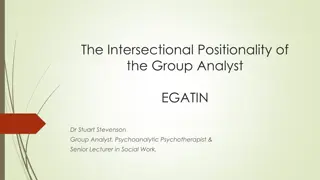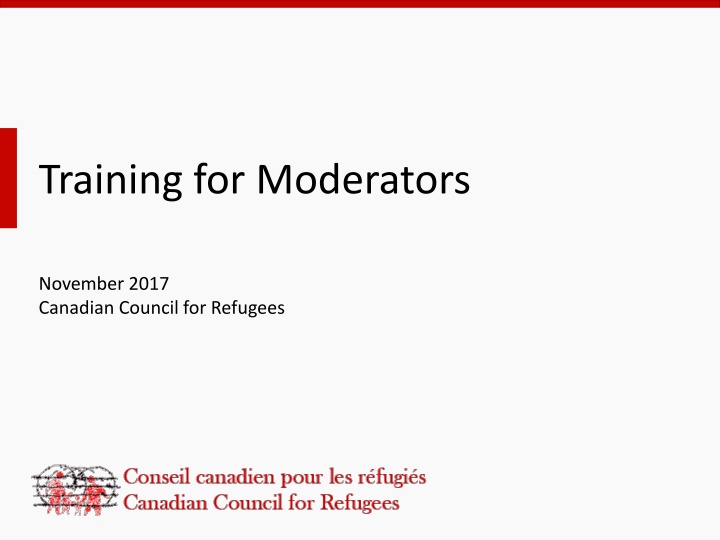
Training for Moderators - Power & Oppression in Society
This training session by the Canadian Council for Refugees delves into the dynamics of power, privilege, and oppression in society, highlighting how individuals are advantaged or disadvantaged based on structural inequalities. The content explores how privilege can lead to oppression, affecting various aspects of life such as race, gender, language, and more. Through examples of privilege leading to oppression, the session aims to raise awareness and understanding of these complex societal issues.
Download Presentation

Please find below an Image/Link to download the presentation.
The content on the website is provided AS IS for your information and personal use only. It may not be sold, licensed, or shared on other websites without obtaining consent from the author. If you encounter any issues during the download, it is possible that the publisher has removed the file from their server.
You are allowed to download the files provided on this website for personal or commercial use, subject to the condition that they are used lawfully. All files are the property of their respective owners.
The content on the website is provided AS IS for your information and personal use only. It may not be sold, licensed, or shared on other websites without obtaining consent from the author.
E N D
Presentation Transcript
Training for Moderators November 2017 Canadian Council for Refugees
Training for Moderators Power, Privilege, Inclusion, Powerlessness, Oppression, Exclusion Power and privilege are part of the social structures in which we all participate, and we all are at times advantaged or disadvantaged by these power imbalances. We are all affected by power imbalances, sometimes negatively and sometimes positively. Power imbalances create situations of privilege that inherently favour some and disadvantage others 2
Training for Moderators Power, Privilege, Inclusion, Powerlessness, Oppression, Exclusion Privilege that negativelyaffects those not in a position of power is oppression. Much of the power of privilege comes from its invisibility it seems normal and even natural. Different power imbalances cause forms of oppression that interlock to make individuals experiences different. 3
Training for Moderators Power, Privilege, Inclusion, Powerlessness, Oppression, Exclusion The oppression may be felt as negative attitudes towards her/his skin colour, religion, ethnic identity, gender, sexual orientation, language skills, education, physical limitations, etc. Systemic responses to individuals affect entire groups within our society Exclusion is the result of power imbalances. 4
Training for Moderators Examples of privilege leading to oppression: Area of Privilege Who is privileged? Examples of how you are privileged. Colour White A whole array of benefits in this society including: Being given the benefit of the doubt Not subjected to racial profiling Gender Men You benefit from a whole array of privileges throughout society. E.g. political and corporate leaders, higher wage levels Language English as a first language You are able to understand and express yourself without any special effort. You may presume that French-speakers should make the effort to speak English. Believe that newcomers should learn English in order to participate. 5
Training for Moderators Examples of privilege leading to oppression: Area of Privilege Who is privileged? Examples of how you are privileged. Sexual Orientation Heterosexual You don t fear that your sexual orientation may be discovered. Religion Christians Christianity is reflected all around us. Physical Ability Able bodied No need to worry about how you will get to the meeting room or reach the microphone. You will be able to see and hear what takes place Experience in the CCR Long experience and involvement You know how to move forward an issue within the organization. Knowledge of refugee and immigration law and policies People with lots of knowledge You can understand some points more quickly than others, and may assume that you don t need to listen to others. 6
Training for Moderators Civil servants are welcome too! At a CCR consultation, government reps may feel in the minority. Criticism of policies must not undermine respectful attitudes towards all individuals. 7
Training for Moderators Responses to Oppression in Workshops At all times, be aware of power dynamics and difference, and be prepared to support the person(s) who is marginalized/has less power. Address a concern/issue immediately, and preferably during the session. Refer to ground rules and the CCR anti-oppression policy. If necessary, use a timeout . The complaints procedure is available if necessary. 8
Training for Moderators Thank you and good luck! 9

